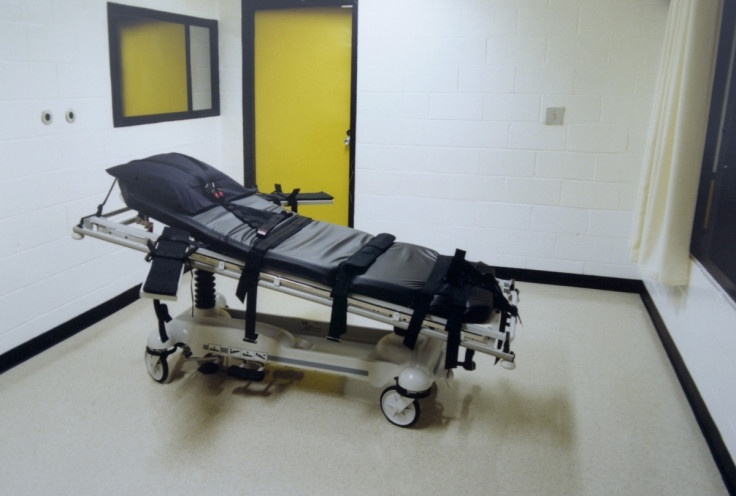Number of US executions up from 2016 but down by half from a decade ago
Executions in the US peaked in 1999, when 98 inmates were put to death.

A court reprieve that halted the scheduled December lethal injection of a Texas prisoner means 2017 will end with 23 inmates executed in the US, a figure that although up slightly from the previous year is half of what it was a decade ago.
The year-end numbers also show that Texas will regain its standing as the nation's most active state in carrying out capital punishment.
Texas inmate Juan Castillo, who had an August death date postponed because of Hurricane Harvey, was set for lethal injection 14 December for a December 2003 robbery and fatal shooting in San Antonio.
However, the Texas Court of Criminal Appeals, the state's highest criminal court, this past week sent the 36-year-old Castillo's appeal back to his trial court to review arguments from defence attorneys that a witness presented false testimony at Castillo's 2005 trial.
Castillo's was the last execution scheduled for 2017 in the 31 states that impose the death penalty, according to statistics kept by the Death Penalty Information Center, a Washington-based group that opposes capital punishment.
Texas put to death seven prisoners this year, matching the state total from 2016. They were among the 23 inmates — up from 20 last year — put to death in eight states in 2017. Arkansas carried out four executions, followed by Alabama and Florida with three each, and Ohio and Virginia with two each. Georgia, which topped the nation in 2016 with nine, executed one prisoner this year, as did Missouri.
Oklahoma, which typically has one of the busiest execution chambers in the country, went another year without putting any inmates to death as the state struggles with implementing a new execution protocol.
Oklahoma put all executions on hold two years ago after several mishaps, including a botched lethal injection in 2014 and drug mix-ups in 2015, and the state's attorney general's office has said it won't request any execution dates until at least 150 days after new protocols are released.
Among the more than three dozen condemned prisoners in the US who won court reprieves from scheduled executions this year was Texas death row inmate Clinton Young, whose friend Robert Pruett was executed in October.
"We understand the reality of what we're facing," Young said in an interview before his October scheduled execution, which was stopped by the Texas Court of Criminal Appeals. "Nobody sits here and cries over it. You've got a limited time. You try to make the best of it.
"But it's like, you don't want to see your friends go."
Governors also halted executions. In one dramatic case, Ohio Gov. John Kasich stopped the November execution of Alva Campbell Jr. when state corrections officials failed after multiple attempts to find a vein on Campbell suitable for the needle carrying the lethal drug.
18 The following year, Texas alone carried out a record 40 executions. As recently as 2010, the national total was 46, but it has been declining steadily.
"Partly it's because of impediments to execution, like the embargo of the optimum drugs," said Kent Scheidegger, legal director of the California-based Criminal Justice Legal Foundation, which advocates for capital punishment. "Although Texas seems to have found ways to get them, many states have not."
Scheidegger also attributed the decline to a "dramatically lower" homicide rate compared with the 1990s and "greater selectivity in which defendants are sentenced to death, by both prosecutors and juries."
A significant impact in Texas was approval of life without parole as a sentencing option in capital murder cases starting in September 2005. Before that, juries could choose between a death sentence and a prison sentence that offered the possibility of parole.
At least eight inmates — five from Texas and one each from Missouri, Alabama and Ohio — are set to die in the first quarter of 2018. The first, scheduled for 18 January in Texas, is Anthony Allen Shore, who confessed to killing multiple people and is known in the Houston area as the "Tourniquet Killer."





















